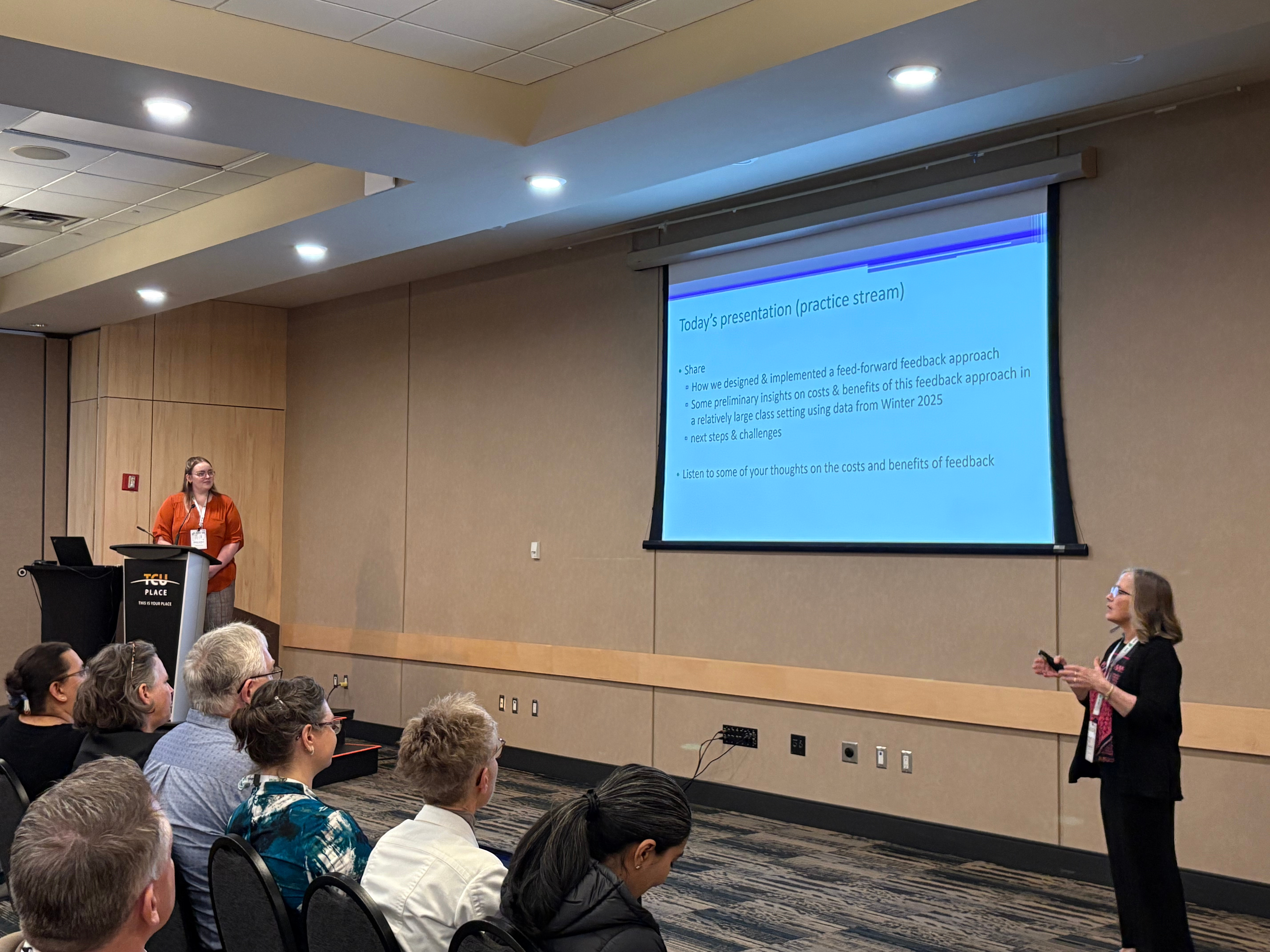We use cookies on this site to enhance your experience.
By selecting “Accept” and continuing to use this website, you consent to the use of cookies.
This past summer, Master of Arts in Business Economics (MABE) student Amelia Graham attended her first academic conference: the Society for Teaching and Learning in Higher Education (STLHE) annual conference in Saskatoon. In going, she was not quite sure what to expect. Would she fit in among experienced researchers and faculty? What she discovered was a very welcoming and supportive community that made the experience both exciting and transformative. Amelia presented research, alongside co-author Dr. Tracy Snoddon, on the costs and benefits of implementing a feed-forward feedback process in a relatively large elective undergraduate economics course. While standing at the front of a full room was a little nerve-wracking, the encouragement and thoughtful questions from the audience helped Amelia grow in confidence as a researcher. Presenting also gave her valuable practice in clearly communicating complex ideas to a broader audience, keeping on time, and responding thoughtfully to audience questions.

When asked about conference highlights, Amelia commented that “one of the most memorable parts of the conference was a keynote seminar by Dr. Melanie Hamilton”. What really resonated was Dr. Hamilton’s idea of the “five friends” every researcher needs - the mentor, the opportunist, the critical friend, the connector, and the cheerleader. For Amelia, the mentor friend was especially meaningful. She credits Dr. Snoddon, who has supported her journey from first year as an undergraduate through to completing her master’s degree, guiding her growth as both a student and a researcher. Amelia has also encountered opportunists, such as Dr. Stephen Snudden, who encouraged her to step outside her comfort zone and embrace opportunities she might have otherwise overlooked. Critical friends have challenged her to think more deeply about her research, while connectors like Dr. Christine Neill have broadened her horizons by introducing her to new networks and possibilities that she had not imagined before. And finally, she is especially thankful for the many cheerleaders, from fellow graduate students to family and friends, who have provided support throughout her academic journey. Amelia carried these lessons back into her own Master’s Research Paper, drawing on the feedback from critical friends, the encouragement of fellow graduate students, and the guidance of mentors, especially Dr. Snudden, to strengthen her analysis and bring her project to completion. She also expressed gratitude for the financial support from STLHE, the Department of Economics and Chair Dr. Neill, and a Laurier Teaching Excellence and Innovation Project Grant that made her participation at the STLHE conference possible,.
For Amelia, the conference was about more than presenting research, it was about discovering a broader academic community and recognizing the importance of students taking part in it. She returned to Laurier with fresh ideas for her research and a deeper appreciation for the value of mentorship, collaboration, and curiosity in academic life. The experience left her eager to keep sharing research, learning, and finding new “friends” along the way as she embarks on her next chapter beyond Laurier, graduating this fall with her MABE degree.